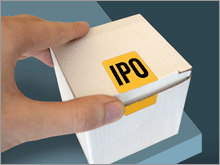|
Return of the bubble: IPOs behaving badly
Call it the not-Google syndrome: For tech companies filing to go public lately, profitability is optional. Investors beware.
Maybe we're back in a tech bubble after all. That's the conclusion to be drawn, at least, from the quality of the technology companies that are filing to go public lately. Of six prominent tech IPOs in registration right now - Vonage, Riverbed Technology, Clearwire, Alien, GoDaddy and DivX - just one, DivX, is profitable.
Perhaps because of high-quality IPOs from profitable companies like Google, Salesforce.com (Research) and Rackable Systems (Research) recently, we've been seduced into thinking that the "old rules" apply again. That is, it used to be that a company needed several quarters of profitable growth before it could qualify for an IPO - not because of government regulations but because investment banks supposedly wouldn't risk their reputations by bringing untested companies to the market. The bankers threw out the rules in the late 1990s, happily muttering something about how if the ducks were quacking you had to feed them. We all know how that ended. While numerous immature companies are alive today because they managed to raise a boatload in bubble-era IPOs, their duped investors got creamed. In the dreadful years after the bust, it was often said that companies would have to do things the old-fashioned way if they wanted to ask public investors for money again. Judging from a raft of filings from companies hoping to go public in coming months, however, the "new" rules never went away. Some of the IPO filings are like bad jokes being played on investors. Vonage seems to be trying to see how much money it can lose before asking for an infusion from the public. The company, which sells an Internet calling service, lost $28 million on operations in 2003, $72 million in 2004 and $265 million last year. It gets better. Vonage spent $243 million in marketing expenses last year in order to generate $269 million in revenue. That's some business. Oh, according to Vonage's filing with the SEC, those marketing expenses do not "include the cost of certain customer acquisition activities, such as rebates and promotions, which are accounted for as an offset to revenues, or customer equipment subsidies, which are accounted for as direct cost of goods sold." Should you consider investing in the Vonage IPO, you might consider asking who is trying to play a joke on you. Other than the company's management, which saw fit to hire a CEO just before filing to go public, the major investors include four big private-equity and venture-capital firms: New Enterprise Associates, Meritech Capital, Bain Capital and 3i. They're the ones who will benefit if money-losing Vonage succeeds in selling its shares to the public. They've agree to hold onto their shares for six months following an IPO, a standard procedure. The rest of the crop isn't much better. Clearwire, a massive wireless adventure founded by industry pioneer Craig McCaw, hopes to raise $400 million to fund its network. It's a true show-me story. Service revenue totaled $8 million last year. The company spent $106 million on selling, general and administrative expenses, managing to rack up an operating loss of $127 million. And it wants your money. Alien Technology is an RFID company. In its most recent fiscal year it recorded a whopping $13 million in product revenue. Operating losses totaled $53 million, up from $27 million the year before. But Alien's ready to go public. It hopes to snag as much as $138 million. The details are similar for GoDaddy, the company that provides domain names, and Riverbed Technology, which makes equipment for something called wide-area data services. It began shipping products two years ago. Perhaps the best proof that Google (Research) is the exception to the rule that we're stuck again in bad bubble behavior is that the only profitable company of the bunch, DivX, relies heavily on Google for its success. DivX makes video compression-decompression software, commonly called a codec, and Google accounted for 15% of the company's revenues last year. But it has other major customers. What's more, its revenues have been doubling yearly and DivX is profitable, making $3 million in operating profits last year on revenue of $27 million. That's certainly small compared to Vonage. But which company would you rather own? ------------------------------------------ Here come the big IPOs. Read more.
Customers to get crack at Vonage IPO. Click here. |
|

